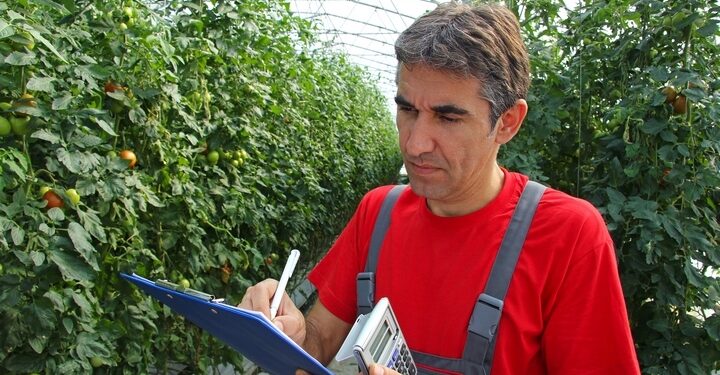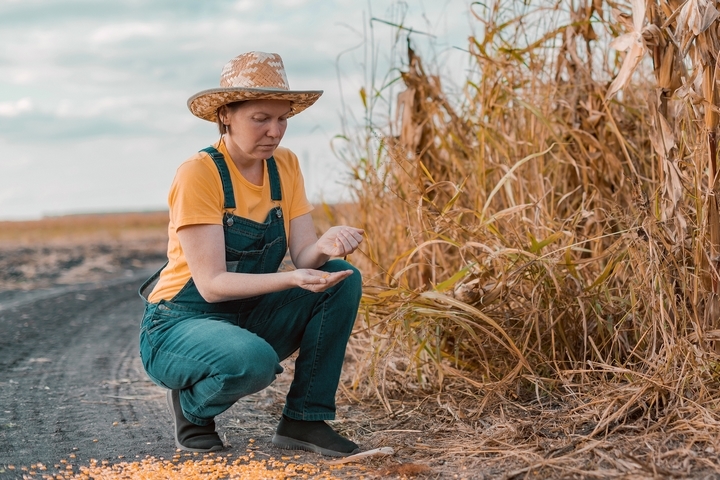How to Become a Farmer and Get Started

Are you interested in growing food or raising animals to make a business? While many farmers work the same land, their parents did and carried on the legacy, and some start as first-generation farmers. Either way, the goal is to succeed by working the land to your financial advantage and producing income as a self-employed person.
This is a lofty goal and one that comes with lots of hard work and specialized knowledge. To aid you in your quest, these are the crucial steps for how to become a farmer.
1. Pick What You Want To Produce

Farming encompasses various things to grow, and you need to decide what you will farm. You should consider it in a few ways, including what you are interested in, what is practically possible and what is most profitable. Here are some examples of what to farm:
- Vegetables
- Fruit
- Grains
- Bees
- Food animals
- Sale animals
- Herbs
- Microgreens
- Flowers
- Cannabis
- Fish
- Trees
- Plants
This list is almost endless, and as long as it grows and is marketable, you should consider farming it.
2. Agricultural Equipment

What you do is important, but how you do it is all about time management and efficiency. You could buy a shovel and start digging rows for crops, but that isn’t the best use of your time. Getting the right ag equipment for the task is better to get your production up and running fast.
Some agricultural equipment you may use includes:
Tractors
This is the most important tool on a farm because it is versatile. You can buy whatever attachments you need for field work and hauling crops, making farming much more productive.
Utility Vehicle
This is another vital piece of equipment to use on a farm. You need to get around your acreage and can carry tools, supplies and workers around the farm. An ATV can handle rough terrain and get around much more efficiently than a tractor for smaller jobs. Think of it as a cross between a tractor and a truck.
Mower
While you will have fields planted with crops and paddocks filled with animals, many grassy areas need tending. A good-sized mower will make lawn work a breeze and save your back from pushing a lawn mower around.
There are too many farming attachments to list, and your use depends on your crops. Ultimately, to be successful at scale, you must have the essential agricultural equipment for your operation.
3. Educate Yourself

Once you know what you are farming, it’s time to get educated. You wouldn’t build a car without learning the steps first, and the same holds for farming.
Do some research into farming methods. You can take classes and talk to established farmers, but in this digital era, you can learn online through articles and videos on how to do almost anything. Learning from someone else’s experience is important, but to understand farming, you should work for someone else for a while.
This is practical, hands-on education, and there is nothing better. Find a farmer willing to take you on and be a fertile sponge. Learn as much as possible, and start your operation when the timing is right.
4. Find the Right Type of Land

Farming takes space, and depending on what you are producing, the right property type comes into play. Raising beef cattle is different from raising fish and different again from growing corn. All take physical space, but the infrastructure and setup are wildly different.
Choose a property that provides the ideal landscape for your farm, and then design it to your exact needs. Ensure you have enough acreage for potential growth, then roll up your sleeve and get busy.
5. Hire a Crew

Initially, your farm staff may consist of you, your spouse, and maybe some of your kids. As you grow and utilize more land for farming, you will require additional workers to complete the daily tasks.
Add workers as needed and ensure you have enough daily tasks to keep them busy. Train them on the equipment and procedures you use so they are on board with your best practices, and keep them happy and accountable while they are on the job.
To be successful as a farmer, you are going to need the following:
- Grit
- Organization skills
- Tenacity
- Strong judgment
- Natural and learned ability
- Business acumen
This is how to become a farmer. Follow these steps and personalize it to your niche to hit the dirt running. Farming isn’t a quick cash scheme but rather a dedicated pursuit of producing goods to be sold for profit.
Enjoy your journey of becoming a farmer, and take pride in the fact that you are contributing to the bounty that the world needs.


